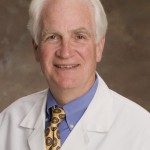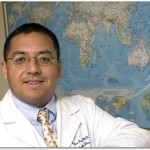
By Walter J. Curran, Jr., MD
Executive Director, Winship Cancer Institute
Chair, Department of Radiation Oncology, Emory University School of Medicine

Walter J. Curran, Jr., MD
Emory Healthcare is a key player in plans to bring the world’s most advanced radiation treatment for cancer patients to Georgia. Emory Healthcare has signed a letter of intent with Advanced Particle Therapy, LLC, of Minden, Nevada, opening the door to a final exploratory phase for development of The Georgia Proton Treatment Center – Georgia’s first proton therapy facility.
For certain cancers, proton therapy offers a more precise and aggressive approach to destroying cancerous and non-cancerous tumors, as compared to conventional X-ray radiation. Proton therapy involves the use of a controlled beam of protons to target tumors with precision unavailable in other radiation therapies. According to The National Association for Proton Therapy, the precise delivery of proton energy may limit damage to healthy surrounding tissue, potentially resulting in lower side effects to the patient. This precision also allows for a more effective dose of radiation to be used.
Proton therapy is frequently used in the care of children diagnosed with cancer, as well as in adults who have small, well-defined tumors in organs such as the prostate, brain, head, neck, bladder, lungs, or the spine. And research is continuing into its efficacy in other cancers.

The gantry, or supporting structure, of a proton therapy machine.
The closest proton therapy facility to Georgia is the University of Florida Proton Therapy Institute in Jacksonville. Currently there are only nine proton therapy centers in the United States, including centers at Massachusetts General Hospital, MD Anderson Cancer Center in Houston and the University of Pennsylvania.
This is an exciting development in our ability to offer not only patients throughout Georgia and the Southeast the widest possible array of treatment options but patients from around the world who can come to Atlanta via the world’s busiest airport, Hartsfield-Jackson International. In addition, we will work to expand its utility and access for patients through collaborative research projects with Georgia Tech and other institutions. Winship physicians will also be able to reach out to their international colleagues and provide direction in how best to study and implement this technology in the care of cancer patients.
Under the letter of intent, Emory Healthcare faculty and staff will provide physician services, medical direction, and other administrative services to the center. Advanced Particle Therapy, through a Special Purpose Company, Georgia Proton Treatment Center, LLC, (GPTC) will design, build, equip and own the center. The facility, which will be funded by GPTC, will be approximately 100,000 square feet and is expected to cost approximately $200 million. Site selection for the facility is underway, and pending various approvals, groundbreaking is expected in the Spring of 2012.
Video
The follow video presents a 3D simulation of proton therapy technology.
Additional Information:







